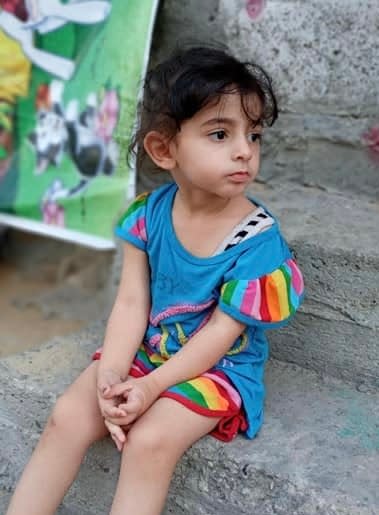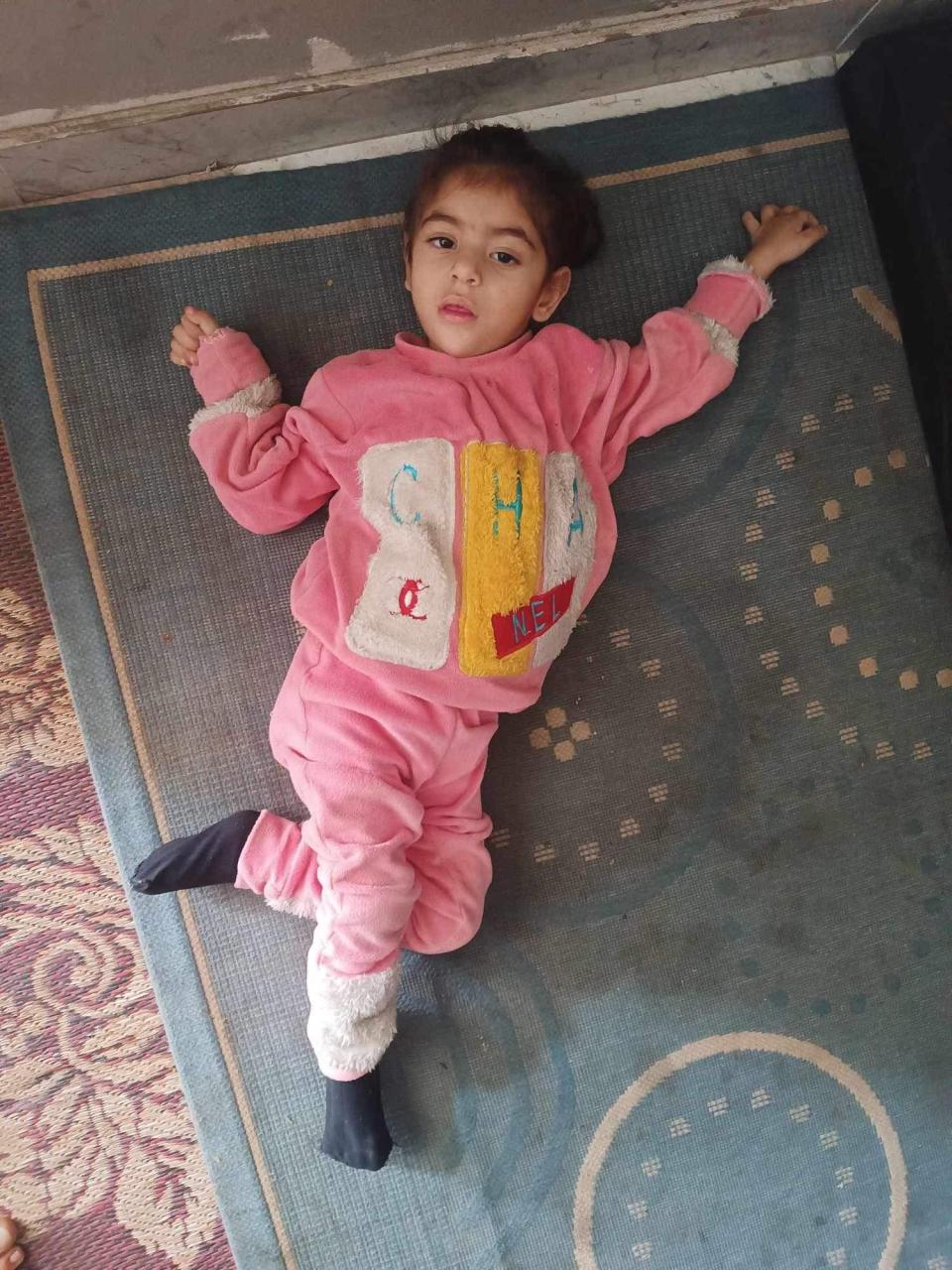Palestinian girl needs life-saving treatment but can't leave Gaza because of border closing
Three-year-old Julia Abu Zaiter is running out of medicine and, her family fears, out of time.
The young Palestinian girl has a rare neurological condition that can cause epileptic seizures and paralysis and, without proper treatment, is considered life threatening. But access to medical care has been sorely lacking since her family fled their home in northern Gaza at the start of Israel’s war with Hamas. The family has lived for the past seven months in a tent in Rafah in southern Gaza, near the border with Egypt.
With Julia’s condition growing more dire, relief organizations and other groups have been pushing to get the young girl evacuated to Egypt, where she could be stabilized and then sent elsewhere for treatment.
But last week, Israel seized the Rafah border crossing into Egypt and sealed it off in anticipation of a full-fledged invasion of Rafah. No one is allowed to cross, leaving the medical attention Julia needs awaiting her within sight just across the border – yet hopelessly out of reach.
“She’s in bad condition,” Julia’s father, Amjad Zaiter, told USA TODAY.
More: Israel orders Palestinians to evacuate from more areas of Gaza's Rafah

Julia, severely malnourished after seven months of war, is out of three of the five medications she relies on to manage her symptoms and has enough of two others to last maybe a month. Her father and mother, Maha, have gone without food at times to be able to pay for her medicine. Unless they are able to get a new supply, they fear the worst.
Julia has a rare genetic condition known as AHC, or Alternating Hemiplegia of Childhood, which can be characterized by repeated episodes of weakness or paralysis that may affect one side of the body or both. The condition is so rare that it has been diagnosed in only about 1,000 children worldwide. Symptoms also can include intermittent abnormal eye movements, episodes of muscle stiffness or posturing, or in a substantial number of cases, seizures.
In Julia’s case, she is often paralyzed for long periods, suffers epileptic seizures, and frequently has spells of reduced consciousness. Symptoms are aggravated by stress or loud noises. The constant sound of bombs, airplanes and artillery in Rafah frightens her and causes her to suffer severe cramps, her father said.
“With the interruption of medications during the war, her condition worsened,” he said.

Simon and Nina Frost, who live in Washington, DC, and whose daughter Annabel also has AHC, met Julia’s father through a Facebook support group for parents of children with the disease. They helped get medicine to Julia’s family and are trying to get more sent to her before she completely runs out. But the closure of the Rafah border crossing is making that impossible.
“If she doesn’t get her medications, I fear for her life,” Simon Frost said. “There are plenty of kids every year that die from the symptoms of the disease, and especially kids that have epileptic episodes.”
Julia’s case has caught the attention of the Palestine Children’s Relief Fund, which has been working to try to secure her entry into Egypt. A hospital in Rafah has provide the family with the medical referral needed to evacuate Julia into Egypt. Once there, she could be placed into a private or government medical facility to stabilize her condition while doctors weigh their next step, which might include moving her to the United States or another country for treatment.
But getting families into Egypt from Gaza is difficult even under normal circumstances, said Tareq Hailat, who heads the organization’s treatment abroad program.
“You have to ensure that all the bureaucratic steps are taken,” Hailat said. “You have to ensure that they have the proper documentation.”
Many families don’t have the necessary documentation because it was lost when their homes were burned or destroyed in Israeli airstrikes, he said.
“It’s an extremely complicated process,” Hailat said. “Now, on top of all of that, the entire border is completely closed. There’s no one that’s allowed in or out. There’s no aid that’s allowed in or out. It’s almost a completely impossible task at this particular moment.”
Hailat said his organization is working with several other families whose children need medical care outside of Gaza but have been unable to leave.
More: Biden administration acknowledges possible Israeli weapons misuse in report to Congress
Meanwhile, Israel called on Saturday on Palestinians in Rafah to evacuate and head to what it calls an expanded humanitarian area in Al-Mawasi, a further sign that the military is pressing ahead with its plans for a ground attack on Rafah.
Julia’s father said his family plans to stay put for now. Transportation is costly, and there is no room for them in the places they have been told to go, he said.
“We will wait several days to see what happens,” he said.
Friends of the family are raising money to help the family pay for transportation and other costs they will incur if they are able to evacuate Julia from Gaza and get her the medical help she needs.
But that can’t happen as long as the border is closed. Humanitarian groups “could have Julia medically evacuated tomorrow if Israel opened the border,” Frost said.
Contributing: Reuters
Michael Collins covers the White House. Follow him on X, formerly Twitter, @mcollinsNEWS.
This article originally appeared on USA TODAY: Palestinian girl can't access medical care because Rafah border closed
